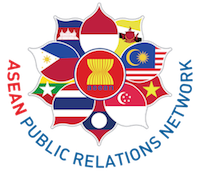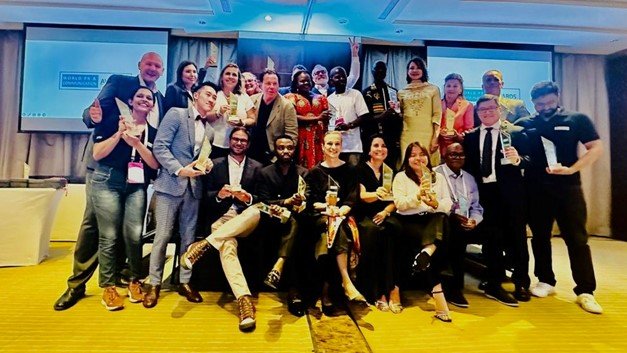Feature Article, Global Alliance: “The value of communication as a strategy to reinforce a brand and maintain a good reputation in the market is undeniable”
Marta Perlado has a strong background as leader of a PR school. She holds a PhD in Information Sciences from the Complutense University of Madrid and a degree in Information Sciences (Advertising and Public Relations) from the same university. After 29 years as a teacher and researcher at the Nebrija University of Madrid, she is currently the dean of the Faculty of Communication and Arts, an appealing combination of public relations and creativity.
She is a leader in the communication sector, not only because of her academic responsibility, but also because of her determination to update training models that bring students closer to the business demands at all times.
When I meet Marta at the university, she always walks at a fast and steady pace, from one meeting to another, from one event to the next… her thoughts run as fast as her work. However, it is worth reading her answers at a leisurely pace to digest the depth of her thoughts.
- How must be the educational journey of a PR professional?
If you want to work in PR, nowadays young people have a very complete and up-to-date academic offer. Since 2008, Nebrija has offered a degree in Advertising and PR, with an eminently advertising perspective, although complemented with PR as an additional tool.
Also, since 2017, being aware of the growing relevance of corporate strategy for brands, the organisation of events as brand activation and user experience, as well as the application of a correct protocol to reinforce the message, we have been offering the degree in Corporate Communication, Protocol and Event Organisation.
- How has the PR profession changed in the last ten years?
Fortunately, the Communications Director of a company is now recognised in level that he or she would not have been ten years ago. The value that a good communication strategy brings to a brand, together with the timely implementation of a communication plan that manages to position the brand and improve its reputation, is becoming increasingly important in today’s market. For this reason, the Communication Director is a member of the company’s top management and intervenes in the executive management, as an essential part of it.
- Could you share a short story or anecdote related to your vocation?
Before starting to teach at Nebrija University, I worked at the advertising agencies Valmorisco Asociados and AGR Agropubli, in client services, accounts and media, and when I started teaching I always did so in subjects related to advertising communication, although within the University’s activity there are also many university extension activities in which I have actively participated. I am very proud to have created, together with a group of Nebrija professors, the Jóvenes Tocados por la Publicidad festival, an event that today, with more than 20 editions behind it, is a very well-known event in the advertising sector. This event has brought me close to the field of corporate communication and events, to which I feel very involved in and which I believe is a fundamental area of development in today’s communication.
- Choose a key moment of your professional career.
Perhaps the moment when I was appointed Dean of the Faculty of Communication and Arts at Nebrija University in 2013. After so many years as a teacher, researcher and manager, I have been fortunate to be able to lead a faculty that is a pioneer in its field, linking communication, art, creativity, design, technology and cultural trends. We have managed to create a multidisciplinary centre inspired by the academic concept of the Anglo-Saxon schools of Visual Arts and Communication -such as Parsons Art and Design School or Hunter College-, an orientation that integrates the disciplines of communication and the arts, promoting creativity and the digital environment, which is dominant in both areas.
- Define the purpose of the PR profession.
Broadly speaking, the main objective of PR is based on taking care of the different audiences of a brand. It is a strategic tool with which allows to reach your audience in a real, closer and more effective way than any other traditional advertising tool. Brands know this and that is why they are increasing their budgets for these actions at the expense of the traditional ones. The interaction with a product at an event, the value of that experience, making the guest feel unique and special, activating your brand through emotion, are just some good examples of this.
- How digitalization is impacting on the PR job?
Digitalisation has transformed the way we communicate, at all levels. In the professional sphere, this impact forces us to constantly update ourselves in order to respond to the demands of the sector. In the PR job, the management of the 2.0 sphere with influencers as a phenomenon that has impacted and transformed the business, is great proof of this. Today’s PR must know how to work taking into account factors such as immediacy, or interaction with the user, fruits of this digitalisation, to give just a few examples.
- What do you think is our main challenge?
The value of communication as a strategy to reinforce a brand and maintain a good reputation in the market is undeniable. Brands are aware of this and are increasingly opting for this type of tool, known as “below the line”, to better reach their target audience, who end up becoming brand prescribers. Today’s market requires brands that are sensitive to their environment, that are truly committed to their surroundings and that transmit the values with which their target audiences identify. I believe that the biggest challenge is for brands to truly implement a real Corporate Social Responsibility policy in all areas, and for this to be the basis of their communication and PR strategy.
- Is the PR function threatened by marketing?
There has always been this “duality” between marketing and communication. I believe that both are necessary and important tools for brands, each with their own functions and objectives. Sales are important, but you cannot sell something in the long term without making it known and communicating it properly. The ultimate goal of a brand is to sell, but before this step, there are others that would not be possible without proper communication. Both tools are necessary and complementary for the success of a brand in the market.
- Which do you think is our main challenge on the ethics side?
Today’s consumers require brands that are transparent, that generate trust and that transmit values with which they feel identified. As I said before, I believe that Corporate Social Responsibility should be the basis on which all the company’s strategic communication revolves, so that the synergy in favour of ethics is real. A specific communication campaign in favour of a social cause is not enough; a truly committed brand must implement all its actions from the top management to behave as the social agent that it is.
- Do you think “truth” is threatened in the digital world?
Digitalisation brings with it many challenges, such as immediacy and fake news. The professionalism of the Communication Director who sends the press release, as well as the editor who writes the news, relies in verifying information. The truth is still the “everything”, and for communication professionals it should continue to be the “maxim” in their day-to-day work, although sometimes social networks or viralisation do not make it easy.
- What do we have to do to elevate the profession? That means, for example, to be recognized as a C-Suite function.
The communication management of any company is fundamental for society to perceive the value that the entities contribute. But the effectiveness of this profile is only possible when it is given genuine importance, as this role is essential to defend and contribute to the sustainable development of companies. For this reason, the Communication Director must be involved in the company’s strategic line and be part of the senior management, so that everything is aligned for the benefit of the brand and the proposed objectives.
- What attitudes and skills need a PR manager?
Skills such as the ability to analyse and synthesise are essential for professionals who want to manage the communication strategy and image of brands. Among other skills, they must show a great capacity for adaptation and conviction, beyond professionalism and know-how to implement effective actions. Also, mastery of the digital world, and everything to do with digital media, is basic to achieve an appropriate image and, ultimately, to generate a good reputation for the brand in the market.
- Do you think the Academia is serving the needs of the profession at the right pace?
At Nebrija we work every day to offer students up-to-date training that responds to the demands of the market. This is a sector that is constantly reinventing itself and, proof of this, are the modifications to the curriculum that we are implementing to keep ahead of the professional reality. This degree began to be taught in 2017 and the number of students has not stopped growing, a clear indicator of the good reception, both by students and the sector.
- Which managerial skills should improve or develop a PR manager?
Coordinate internal communication as a tool to create dialogue and strengthen connections and encourage communication between departments so that ideas flow and employees have pride of belonging. The relationship with the media and that the Dircom has a good pool of contacts is also fundamental to its success. Dealing with their queries and giving the company’s official point of view to the public is perhaps the most important job of a communications director.
The relationship with other companies, or institutional relations, are skills that must be managed for a good positioning of the brand with all the social agents with which it interacts.
- What would you say to a trainee on his/her first day of work?
I always stress the importance of the candidates’ attitude, their motivation, interest and desire for the future, and the predisposition they show. Obviously, a good academic record is important, as well as the knowledge acquired in their training, but we must not forget the soft skills, which are what can differentiate one good candidate from another.
- And the same to a senior manager over 50 years old.
The experience and know-how that a professional over 50 can bring is of great interest to any company or institution. He or she must assert his or her qualitative advantage over younger people, who lack this perspective and vision of the sector through years of experience.
- Please, share with us a quote which impacted you the most.
I really like Maya Angelou’s quote “People will forget what you said, what you did, but they will never forget how you made them feel”.
- Recommend a book to the Global Allliance community.
“La interrupción”, by Toni Segarra and Edu Pou, is a conversation between two great advertising creatives who not only talk about advertising, but also about the adaptability of communication in general and creativity, and how interruption acts as a determining factor in human existence.
Source: https://www.globalalliancepr.org/thoughts/2023/3/14/deep-talks-with-pr-global-leaders-marta-perlado






